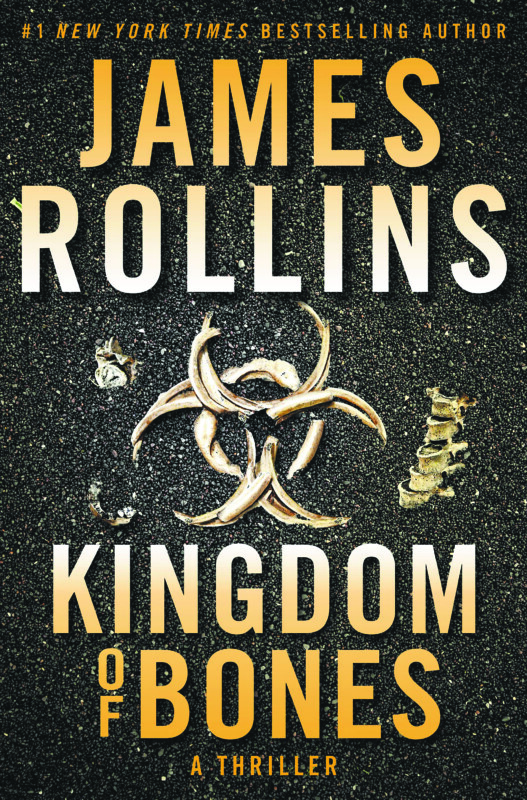The Immortal King Rao, by Vauhini Vara (W.W. Norton & Co., 384 pages)
Commercially successful fiction usually doesn’t make the reader work too hard. The story typically flows in a fast-running river, propelled by familiarity and forum. No brows need furrowing, no paragraphs or sentences re-read.
Vauhini Vara could have gone that route with her debut novel, The Immortal King Rao, for at its simplest, the plot has all the markers of prime Hollywood fare: A brilliant and eccentric tech titan creates technology to essentially offload one’s consciousness into another person, as a climate-ravaged planet transforms society into a socialist dystopia.
Instead, Vara added layers of complexity, making her titular character an immigrant who was born into the lowest caste in India and then moved to the United States to get a graduate degree. Naming a child born of rape “King” is an act of defiance and hope performed by the aunt who raises the child after his mother died in childbirth. Yet King Rao himself is dead as the novel begins. His effect on the world is largely told by his daughter, who is in jail, accused of killing her father.
As a father, King was “uncommonly old” and raised his daughter largely on his own, after he had been forced out, not only from Coconut, the massively influential tech company that he founded, but also from society in general. At the peak of his power, King was something like a combination of Steve Jobs, Jeff Bezos and Elon Musk, with a sprinkling of Karl Marx. He just happened to be all this, and also a Dalit, an “untouchable” in India’s caste society.
In America, however, he rose to the potential of his name.
King Rao had, Vara writes, “rescued the planet from nation-state rule, which was bringing society to ruin, and engineered a calm and peaceful transition to Shareholder Government, under which the world’s citizens collectively owned its corporations.”
Worldwide, societies were run not by human leaders but by the “Master Algorithm” that Coconut developed. Rather than money, people traded in Social Capital, “based on the Algo’s prediction of the actual value they had produced.” The Master Algorithm also decided what schoolchildren would be taught (the curriculum was the same worldwide) and what punishment would be given to criminals.
This large-scale transformation had been enabled, in part, by the myriad breakdowns occurring on “Hothouse Earth.” But not surprisingly, not everyone signed on to this system, resulting in deadly rioting. Instead of punishing the objectors, the Master Algorithm ruled that they could live on islands that came to be known as “the Blanklands.” These people came to be known as “exes” and leaving society was called “exing.”
And King Rao and his daughter became exes, too, as a requirement of the algorithm’s judgment.
Living in almost total isolation on an island in Puget Sound, Athena has a largely blissful life as a child with her doting father. But when she turns 7, she starts to experience something akin to visions. When, for example, her father calls her “Puffin,” one of her nicknames, she suddenly can see images of the birds, “their potbellied stomachs thrust forward as if they were businessmen at a conference.”
She also suddenly has knowledge of puffins that she has not been taught — such as the fact that prior to their extinction, people in Iceland used to trap puffins for food in a net on a pole, and this was called “sky fishing.”
Athena’s brain, in effect, had absorbed the internet through a product her father’s company had invented called “The Harmonica.” It was to be King’s crowning achievement, yet the technology had failed — not because it was a moral problem, but because of an engineering fail that resulted in the deaths of test subjects.
But King had managed to have the genetic code implanted in a frozen embryo that would eventually be Athena. “His decision to leave the mainland, to take up residence on Blake Island instead of one of the established islands — all of it was meant to keep the world from discovering the project of my existence,” Athena says.
King experimented on himself, too, and Athena can experience his memories. So she is able to explore his early years, his relationship with her mother and how she came to be, in the comfort and safety of her own mind, even as her physical safety becomes increasingly uncertain.
Like King, the author — who has been a reporter and editor for The Wall Street Journal and The New Yorker — hails from a Dalit family. She has said it took 12 years to write the novel, and it shows. It is a finely layered story with a beginning that is difficult to get through, not only because of the subject matter (the sexual assault of a child and a marital rape occur in the first chapter), but also because it’s challenging to keep up with various Rao family backstories that seem not to matter. The novel quickly picks up speed, but even so, readers may find little to emotionally connect them with the characters. The ending is jarring, but elicits little more than a pained “oh.”
The Immortal King Rao is clearly a cautionary tale about something; it’s just not entirely clear what. Still, it manages to be inventive and often lyrical in the telling and was 12 years well spent. B
Book Notes
Little, Brown & Co. is billing James Patterson’s latest book as “the most anticipated memoir of 2022,” and the publisher is probably not wrong, given that its competition right now includes memoirs by political strategist Kellyanne Conway (Here’s the Deal, Threshold, 512 pages) and actress Melissa Gilbert (Back to the Prairie, Gallery, 282 pages).
Patterson has written or co-written more than 200 books, and The Washington Post has said of him, “In book publishing, there is James Patterson — and basically everyone else.”
Still, there’s something that smacks of hubris in the title of the book, which is James Patterson, The Stories of My Life. Which means the listings of the book say James Patterson by James Patterson. You can get away with that when you’re James Patterson. The memoir is 400 pages and comes out on Monday.
While we’re on the subject of writers writing about writers, we may as well move on to books about books and readers, which is suddenly a thing.
The Woman in the Library (Poisoned Pen Press, 288 pages), also out next week, is by Sulari Gentill and is billed as an “unexpectedly twisty literary adventure” set in the reading room of the Boston Public Library.
Emily Henry’s Book Lovers (Berkley, 384 pages) is a romance novel about a literary agent and a book editor who keep encountering each other while vacationing in North Carolina. (Definitely a beach read from an author whose previous titles include 2020’s Beach Read.)
And in August comes Bookish People (Harper Muse, 336 pages), a comedic novel by Susan Coll that is set in the world of an independent bookstore in Washington, D.C., and will appeal to anyone who might name a cat Kurt Vonnegut Jr.
Book Events
Author events
• JAMIE RASKIN Author and congressman presents Unthinkable: Trauma, Truth and the Trials of American Democracy. Gibson’s Bookstore, 45 S. Main St., Concord. Fri., June 3, 11 a.m. Visit gibsonsbookstore.com or call 224-0562.
• AMOS J LANDON Author presents debut novel The Girl, The Pig, and the Accidental Demon. Sat., June 4, 2 p.m. Toadstool Bookstore, Somerset Plaza, 375 Amherst St., Nashua. Visit toadbooks.com.
• ANDREA PAQUETTE Author presents Loveable: How Women Can Heal Their Sensitive Hearts and Live and Love as Their True Selves. Sat., June 18, 6 p.m. Toadstool Bookstore, Somerset Plaza, 375 Amherst St., Nashua. Visit toadbooks.com.
• PAUL DOIRON Author presents Hatchet Island. Gibson’s Bookstore, 45 S. Main St., Concord. Wed., June 29, 6:30 p.m. Visit gibsonsbookstore.com or call 224-0562.
• PAUL BROGAN Author presents A Sprinkling of Stardust Over the Outhouse. Gibson’s Bookstore, 45 S. Main St., Concord. Thurs., June 30, 6:30 p.m. Visit gibsonsbookstore.com or call 224-0562.
Poetry
• DOWN CELLAR POETRY SALON Poetry event series presented by the Poetry Society of New Hampshire. Monthly. First Sunday. Visit poetrysocietynh.wordpress.com.
Writers groups
• MERRIMACK VALLEY WRITERS’ GROUP All published and unpublished local writers who are interested in sharing their work with other writers and giving and receiving constructive feedback are invited to join. The group meets regularly Email [email protected].
Book Clubs
• BOOKERY Monthly. Third Thursday, 6 p.m. 844 Elm St., Manchester. Visit bookerymht.com/online-book-club or call 836-6600.
• GIBSON’S BOOKSTORE Online, via Zoom. Monthly. First Monday, 5:30 p.m. Bookstore based in Concord. Visit gibsonsbookstore.com/gibsons-book-club-2020-2021 or call 224-0562.
• TO SHARE BREWING CO. 720 Union St., Manchester. Monthly. Second Thursday, 6 p.m. RSVP required. Visit tosharebrewing.com or call 836-6947.
• GOFFSTOWN PUBLIC LIBRARY 2 High St., Goffstown. Monthly. Third Wednesday, 1:30 p.m. Call 497-2102, email [email protected] or visit goffstownlibrary.com
• BELKNAP MILL Online. Monthly. Last Wednesday, 6 p.m. Based in Laconia. Email [email protected].
• NASHUA PUBLIC LIBRARY Online. Monthly. Second Friday, 3 p.m. Call 589-4611, email [email protected] or visit nashualibrary.org.
Language
• FRENCH LANGUAGE AND LITERATURE CLASSES Offered remotely by the Franco-American Centre. Six-week session with classes held Thursdays from 6:30 to 8:30 p.m. $225. Visit facnh.com/education or call 623-1093.






